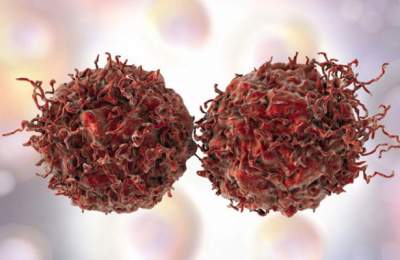 Experts from the University of Michigan (University of Michigan) could find the mechanism by which the immune system gives a good cancer cells to spread.
Experts from the University of Michigan (University of Michigan) could find the mechanism by which the immune system gives a good cancer cells to spread.
The results of the study will help to develop new therapies. In a new study published in the journal of Clinical Investigation, scientists see the role of the immune system in metastasis of cancer cells of the prostate gland.
The urgency of the problem
Prostate cancer affects the prostate gland, which is located under the bladder and surrounds the urethra. Older men are more at risk of developing prostate cancer.
At the final stage, prostate cancer often metastasizes (spreads) to the bones, at this point, the disease couldn’t be stopped. Understanding why this happens is crucial to prevent metastasis and development of cancer. The authors of the new study examined the role of the immune system in this process and shed light on the so-called paradox of tumor growth.
The paradox of tumor growth is that the uncontrolled growth of cancer cells accompanied by a significant number of death of these cells. This death occurs either as a result of immune reaction of the body, or as a result of cancer treatment. In any case, dead cancer cells must be cleaned, but the paradox is that the increase in cell death causes accelerated tumor growth.
“We have, says Hernan ROCA (Hernan Roca), is to understand how to treat these patients to avoid Pro-inflammatory and tumor response, while maintaining the important function of removal of cells”.
Scientists have studied normal immune process called “efferies”. When appereciate immune cells try to cleanse the body from dead cells. These “economic” immune cells called phagocytes, and patients with cancer phagocytes are responsible for cleansing from dead cancer cells.
The scientific results
The results of the study showed that when the phagocytes perform their function, is allocated an inflammatory protein called CXCL5. Researchers have identified signaling pathway, and found that the release of CXCL5 leads to tumor growth.
Scientists examined mice with prostate cancer caused the death of cancer cells in the bone tumors. They found that this led to an increase in CXCL5 and to the rapid growth of cancer tumors. However, when they blocked CXCL5 protein, the tumor ceased to grow.
Next, the researchers wanted to study whether it would be repeated in humans. They found that the level of CXCL5 in blood was higher in patients with metastatic prostate cancer, compared to cancer patients without metastases. Given that bone is rich in phagocytes, the researchers were able to understand the reason why the metastases impossible to stop once they reach the bone.
Rock concludes: “Thus, these data show a new mechanism by which the purification of the dead tumor cells by macrophages (i.e., macrophages) causes a persistent inflammation in the tumor bone microenvironment through expression of CXCL5 and other proinflammatory cytokines, which increase the progression of cancer.”
This suggests that CXCL5 may be a new target in cancer treatment. If successfully blocked CXCL5, new drugs can be targeted to cancer cells, at the same time allowing the body to in a natural way to get rid of the dead cancer cells. This, in turn, can lead to cardiac metastases.
The authors of another study claim that men with aggressive prostate cancer are unlikely to develop metastatic prostate cancer.
© 2017 – 2019, paradox. All rights reserved.





